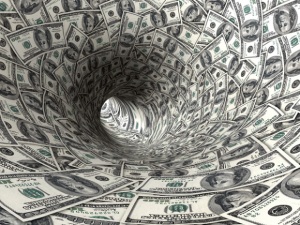Facebook to go public at $85 billion to $95 billion (rumor)

Update - Facebook sets $28 to $35 IPO price range

The WSJ reports:
Facebook to set IPO price range at high-$20s to mid-$30s per share, sources say. Company seeks valuation of $85 billion to $95 billion.
Let's look at these numbers more closely. The last Facebook valuation before the company's IPO was $102.8 billion, the highest yet. That was assuming some 2.33 billion outstanding shares thanks to a share price of $44.10.
Something doesn't add up here. Either Facebook has a lot more shares than the number we've been working with for months, or the WSJ is having trouble doing some basic math. At $30, Facebook would have a valuation of $68.96 billion, while a $90 billion valuation means a share price of $38.63. At least one of these three estimates is wrong: the number of shares, the share price, or the valuation.
Regardless, any of these valuations will make Facebook the most valuable U.S. Web company at the time of an IPO. The only other Web company to come close was Google, at a $23 billion valuation back in August 2004. Recent startups that went public like Groupon and LinkedIn don't even come close. The valuation will also put Facebook near the market capitalization of Amazon and Disney, as well as ahead of other technology giants like HP.
Update - Facebook sets $28 to $35 IPO price range
See also:
- How much is Facebook worth?
- Facebook files for $5 billion IPO
- Facebook's IPO in pictures and Facebook's IPO by the numbers
- Facebook updates IPO filing to underline Zynga deal
- Facebook details Zuckerberg's $500,000 salary, 45% bonus
- Mark Zuckerberg bought Facebook shareholders' votes for $100
- Facebook secures $5 billion credit line, adds 25 underwriters